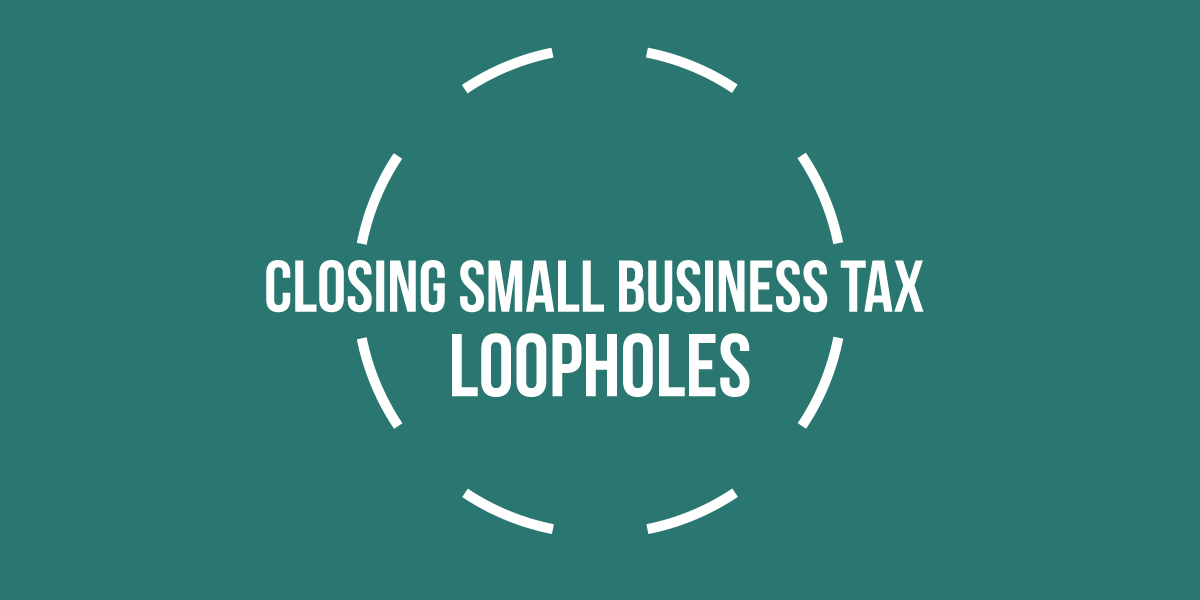 The NDP, Liberals, Conservatives and Greens are now all proposing to cut the small business tax rate from 11% to 9% (albeit on slightly differing timelines), an unnecessary and unwise policy, as outlined in previous CCPA posts. It may make for good politics, but it’s a policy with no economic merit.
The NDP, Liberals, Conservatives and Greens are now all proposing to cut the small business tax rate from 11% to 9% (albeit on slightly differing timelines), an unnecessary and unwise policy, as outlined in previous CCPA posts. It may make for good politics, but it’s a policy with no economic merit.
It’s not all bad news, however. Sensitive to the critique that this policy will worsen inequality and bestow a large benefit to wealthy individuals such as doctors and lawyers who structure their income as a small business, both the NDP and the Liberals are now proposing to close many of the loopholes that allow upper-income people to lower their tax bill.
In their fiscal framework document released on Sept 16, the NDP included this note: “We will ensure that high income individuals are no longer able to use Canadian Controlled Private Corporations (CCPC) to inappropriately engage in income splitting and close other related loopholes that allow some high income individuals to shelter income in CCPCs. This figure has been estimated by Michael Wolfson at an annual price tag of approximately $500 million.”
Then when the Liberals released their costed plan on Sept 26, it included a very similar item: “As we reduce the small business tax rate to 9 percent from 11 percent, we will ensure that Canadian-Controlled Private Corporation (CCPC) status is not used to reduce personal income tax obligations for high-income earners rather than supporting small businesses. Michael Wolfson from the University of Ottawa estimates that approximately $500 million per year is lost, particularly as high-income individuals use CCPC status as an income splitting tool.”
Currently, upper-income professionals use the CCPC to transfer income to spouses and children who pay lower tax rates, or to defer income. Reforming the small business tax rules such as the NDP and Liberals are now proposing makes good sense — they are even both citing the same excellent economist!
If these two parties are forced to cooperate in a minority government after Oct 19, we can reasonably expect them to agree on at least one good policy.
That said, even if these loopholes are closed, cutting the small business tax rate is still poor policy. Here’s why:
<li>When a large gap exists between the small business tax rate and the general corporate tax rate, it may create a dis-incentive for businesses to grow past the income threshold separating the two (business income of $500,000/year).</li>
<li>Small business tax cuts likely fail the opportunity cost test. The foregone revenues (about $1.2 billion a year) would be better-spent boosting investment and employment in other ways.</li>
<li>Lowering small business taxes is unlikely to have any notable impact on investment and job creation. This is because decisions to invest and hire more people are influenced primarily by demand-side factors (whether people are willing and able to buy what a business is selling), not by a supply-side factor, such as small changes in tax rates.</li>
<li>A large proportion of the benefit of the lower small business tax rate is for those defering paying income taxes for 20-30 years, not for business investment. Business expansion is founded on borrowing or leasing rather than saving up for 10 years anyway.</li>
Closing CCPC loopholes is good economic policy and will help reduce inequality, but it’s too bad the parties still feel the need to proceed with this unneeded tax cut.
Seth Klein is Director of CCPA’s BC Office. Follow Seth on Twitter @SethDKlein.






